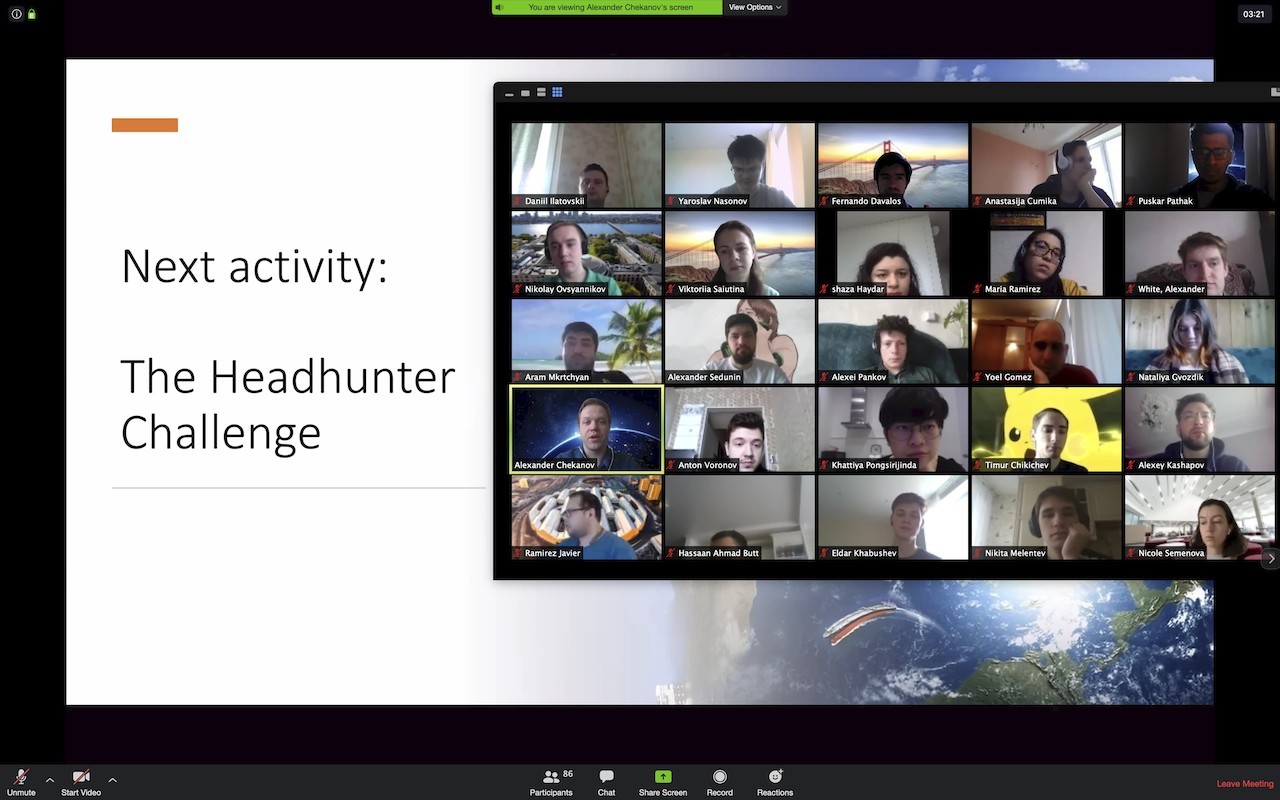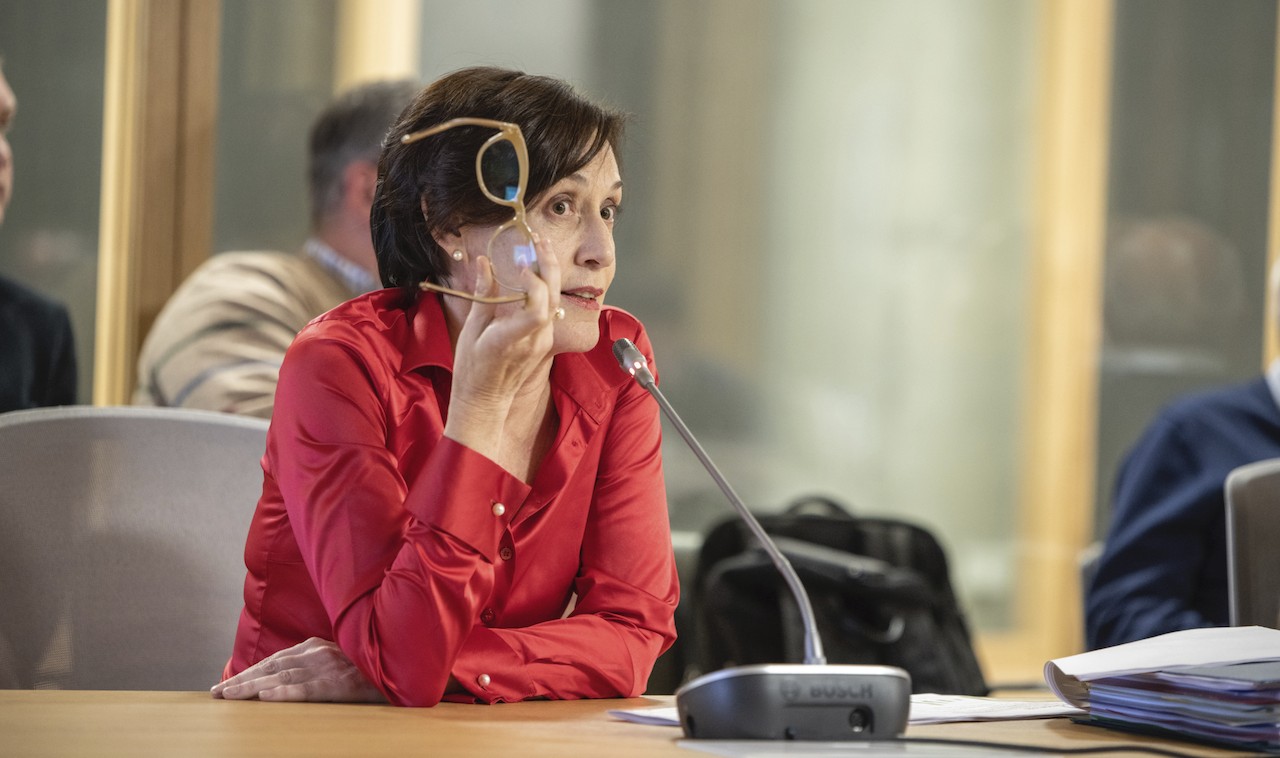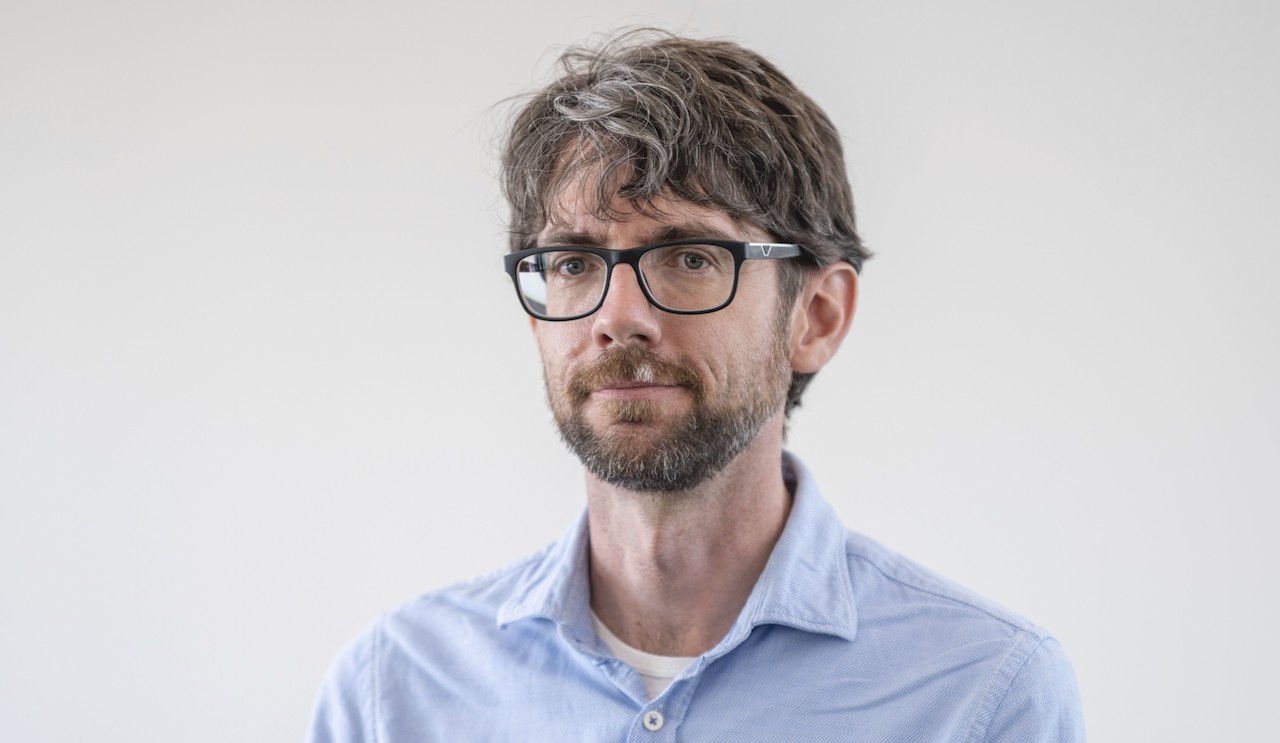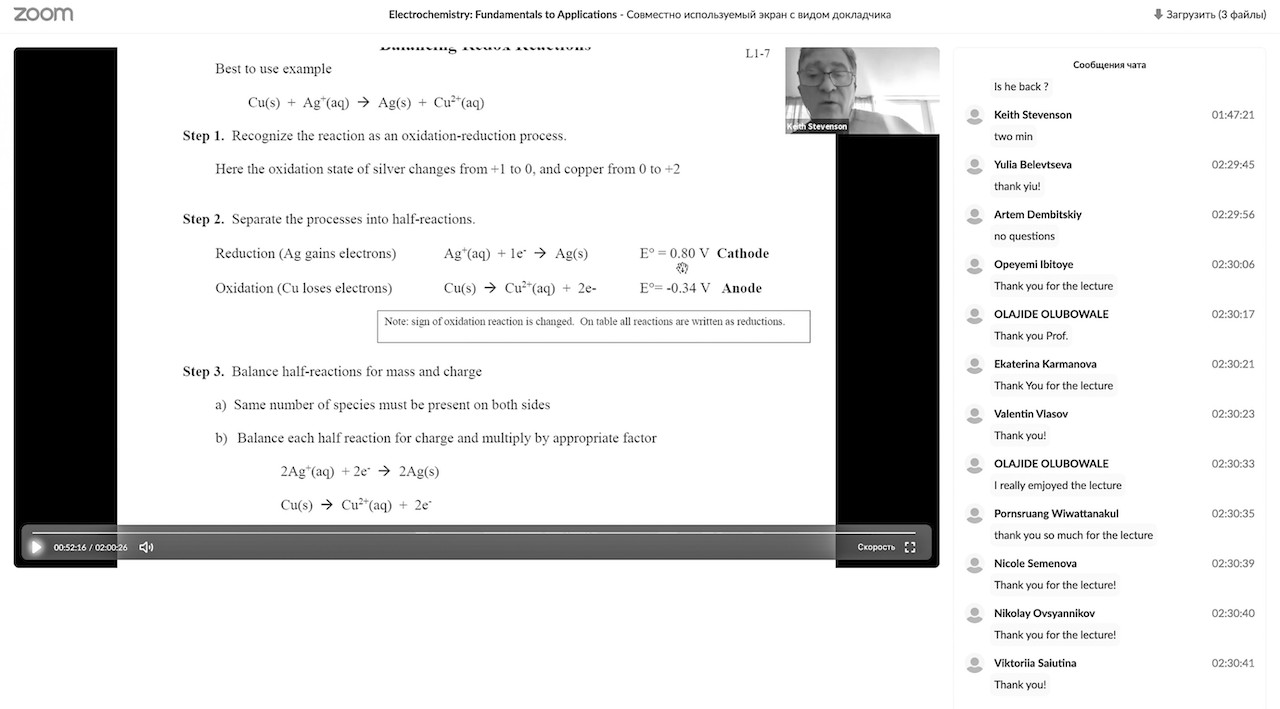Nobody knew that the coronavirus pandemic would be our reality. Nobody knew how it would change our life. As a means of preventing the spread of the coronavirus infection, Skoltech, like other universities, has been conducting its educational activities online. To move online was not as easy as ABC. Now, with Term 4 underway, it is time to have a look how Skoltech took on the challenge.
Anna Derevnina, the Dean of Education, gave us her vision: “The changes affected all elements of the educational process: the academic calendar, the teaching methods, the entire class atmosphere, etc. Yet, Skoltech education adapted to this new “normal” very quickly and with surprising ease. The new teaching module that started in April has 75 courses, all of them given in the new remote format. To support this new environment, Skoltech provides various resources for online education: e.g., the Learning Management System, the e-Library, and, of course, Zoom. A quick analysis of the first week of online education shows that, overall, things are going far smoother than anyone could have imagined. Granted, there are some technical issues, but student evaluations show that, overall, they are quite satisfied with the online course experience they get. I am confident that the quality of online education at Skoltech will continue to improve as we move further into the module. I just hope that the success of this transition will not dissuade students and faculty to show up for old-fashioned face-to-face classes when the pandemic is over”.
In 2019, Skoltech opened its new campus doors, and managing the instruction process was a big deal and a huge challenge for the education department but at the same time a pleasant experience. All faculty, all staff, and all students were concentrated on contributing to an effective offline education. One year later, when COVID-19 was just coming over the horizon, the Dean of Education, Derevnina and her staff faced the challenge to organize and initiate the remote education process. Since the end of 2015, Skoltech has been exploring Canvas LMS (Learning Management System), which now helped the university spring into online action.
“Canvas is a modern platform, where all the main players, whether faculty, instructors or students, can easily come together to serve the primary mission of effective and engaged learning, which in this new online world, is more important than ever. The beauty of Canvas is that it incorporates all the needs of the learning process, from assignments and assessment tools to videoconferencing and group discussions; all in one place. And because of its highly flexible design, we can link in any number of other complementary tools, such as Zoom, Piazza or Google Drive,” says Matthew Mulherin, the Head of the Education Office.
Canvas benefits millions of students, teachers, and staff across 70 countries in more than 3000 universities and companies. Skoltech uses Canvas effectively, not only for courses but for MSc and PhD research, for the Industrial Workshop and the Industrial Immersion, and for the ISP courses and defenses.
With Canvas, Skoltech is well prepared for online learning. Canvas works alongside other tools and formats like Zoom, YouTube, Telegram chats, etc. Not all modes of instruction translate easily to online platforms, but the best online tools have been integrated. However, the main concern of everybody was the effectiveness of the education process without face-to-face contact and outside of the lab.
Victor Lempitsky, associate professor at CDISE and lead instructor of the course “Deep Learning”, emphasized some student interest in virtual education: “The transition online was actually smooth. I find it convenient to share information when needed and reassuring to see students ask questions during classes.”
“My course Geostatistics and Reservoir Simulation is 90 per cent related to software development for hydrocarbon exploration and production. This is why moving these classes online wasn’t difficult, and with lectures the experience is even better than it was expected. But obviously the interactive part has decayed. My co-instructors and I constantly need to encourage students to be engaged more than usual”, says Dmitry Koroteev, SCHR Associate Professor.
One of the most difficult elements to be confronted was the laboratory aspect. There is a real need for students to be in laboratories, to study and work there. “To study some methods from my course «Biomedical Application of Photonics» it is vital to apply that learning with your own hands. To compensate for this, we have created a series of videos of laboratory work. It is not the same, but we hope that it will be much useful material for this extraordinary period and even for future. As a positive side effect, I see that the online format motivates students to be more independent in solving problems. I hope that as soon as possible we all will be back to laboratories”, says Dmitry Gorin, CPQM Professor.
“My course, “Smart Grids”, has about 50% of the class time in the laboratory where students learn how to face new technologies and further explore the topics covered in the lectures. Due to the switch to online learning, I had to change the structure of the course. Unfortunately, lab practice is not allowed, so all practice lessons are now simulated. Exams are a whole other issue. It is difficult to give a traditional written exam, mainly because students can talk to each other, look for answers online, and so on. Therefore, I decided to evaluate each of them individually as in an interview. Finally, they will also present some of their home tasks online in order to evaluate their presentation skills. Fortunately, the communication channel is quite good”, Federico Martin Ibanez, CEST Assistant Professor shared with us his experience.
Equally or even more important was the student´s feedback. The faculty worried a lot about how to achieve high engagement with online classes. After Week 1 of online study, The Education Office conducted an anonymous student survey and received feedback from more than 300 students.
Students find the online process ok, “the best we have given the circumstances”, and some of them confessed that “honestly today’s format is very effective”. At the same time, students report insufficient engagement element, that “it could be better if lectures have an interactive or practical part”.
In addition, students notice that the online learning format is very hard: “It is not good for our health or the health of the eyes, ears, neck and other body parts. Because we use a laptop to learn, to do assignments and other activities, and spend almost the whole day on a laptop”.
Besides effective tools for synchronous, interactive communication and learning, Skoltech students have library resources for online learning, including databases and textbooks, at their disposal.
“Skoltech has always bet on available online resources, both on and off campus. Therefore, we were more than ready for this situation. This is our undisputed competitive advantage. In addition, today many providers have given access to their databases for free. Thus, we have expanded the list of available resources even more”, commented Ivan Smagin, head of Skoltech library.
The Summer Period will come after Term 4. For Skoltech students, this means deep research and industrial immersion. All of us hope the normal life is back as soon as possible. But, in any case, the Skoltech Faculty, the staff, and the students know that any new challenge is a real motivation for educational innovation and for adaptive transformation.
Contact information:
Skoltech Communications
+7 (495) 280 14 81





